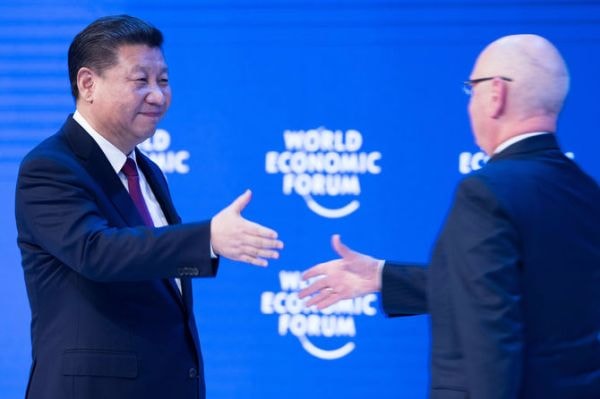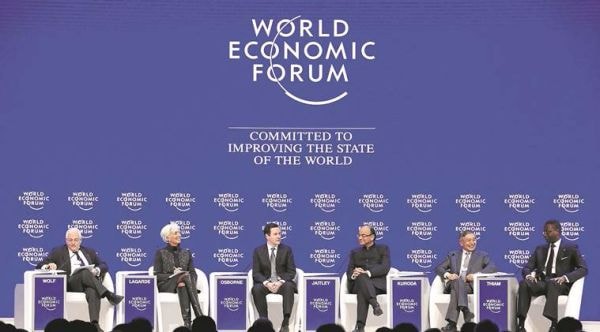WEF Davos: When leaders seek leadership roles
(Baonghean) - The World Economic Forum in Davos is an opportunity to gather talents, a meeting place for elites from around the world. This year's conference has clearly shown that what today's leaders are most looking forward to and yearning for is the role of leadership.
Popular keywords
“Leadership” is one of the most frequently uttered words in the speeches and statements at the World Economic Forum in Davos, Switzerland. Leaders from all walks of life, from politics, economics, and other sectors, gathered together within the framework of the forum, a tradition established in 1971, including young global leaders. The 2017 forum revolved around the theme of “proactive and responsible leadership”. This was considered an occasion to honor all the key figures and guests attending. Many companies and corporations spent a large sum of money, up to 500,000 euros (more than 532,000 USD) to help “shape” the Davos forum. Many participants were people holding positions in charge of companies, international organizations, or heads of governments. They see the Davos Conference as an opportunity to engage in discussions, conduct networking activities, build relationships, do business or exchange information.
 |
| Chinese President at this year's Conference. Photo: Internet |
But this year, it is clear that the leaders attending the meeting are all looking for leadership positions for themselves. They are looking for direction, considering what to hold on to, what is worth relying on. However, it seems that so far there has been nothing noteworthy.
Now is different from the past
When the Soviet Union collapsed, it seemed that there was only one remaining superpower in the world, the United States. And the way forward seemed to be nothing less than globalization and economic competition, free trade and open borders wherever possible, or at least the free and unimpeded movement of capital and labor. All of these were core messages from Davos.
But since 2016, this approach has increasingly faced a big question mark from the dissatisfied middle class in industrialized countries, in populist parties and especially after the successes of the Brexit campaigns in the UK and Donald Trump in the US. Since then, the only thing that can be certain is that it is impossible to know for sure where the world is going…
Analysts have also struggled with countless difficult questions. Will the European Union disintegrate? Is the United States gradually shifting towards comprehensive protectionism? Is free trade on the brink of death? All these unanswered questions have been brought up as topics of debate at Davos, and of course, we cannot ignore how to promote globalization without leaving large, populous areas of the world behind.
 |
| The World Economic Forum is an opportunity to bring together leaders from many different fields around the world. Photo: PTI |
From the perspective of the poor and the left behind, they suspect that these issues are only being discussed now that the mainstream politicians in industrialized countries are nervous about losing power. Even the International Monetary Fund (IMF), which is not a charity, has been warning about inequality for years, but so far no one has paid much attention to these “tired words”.
China is the savior?
The fact that Chinese President Xi Jinping was hailed as a savior of capitalism at this year’s Davos forum only added to the growing signs that the global elite is “on edge” in the face of uncertainty. World Economic Forum founder Klaus Schwab described Xi’s speech as “historic” and a good example of “proactive and responsible leadership.”
Indeed, with what he has shown, Xi Jinping can be considered a supporter of free trade, climate protection and international cooperation. However, as the German newspaper DW commented, China has been a country pursuing protectionist policies for many decades. The Chinese leadership has been very wise in opening up the economy slowly, bit by bit, to the wave of international competition. In some key areas, the country is still "saying no" to external competitors.
Meanwhile, whether Donald Trump will launch the US policy as he has declared is still unclear. The rare thing we can confirm is that the world's largest economy will no longer pursue a policy of "next year as last year". The world is becoming more and more multipolar, power and strength are being distributed almost equally across the planet. That is part of the discussion content at Davos in recent days, but hidden behind that, the thing worth telling the global "elite" who gather here every year is the truth that "things change, stars move", the world cannot remain unchanged, forever the same.
Phu Binh(According to DW)
| RELATED NEWS |
|---|


